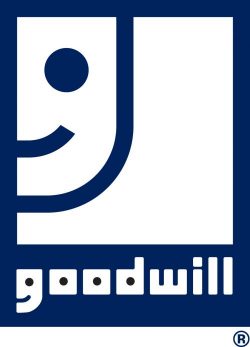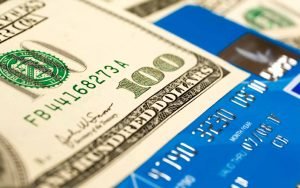After I paid off my student loans in three years, everyone started asking me for my secrets. A story about what I did went viral and suddenly, internet strangers were commenting on my life.
Many assumed that I stayed home during those three years, eating ramen alone. But I didn’t. I traveled to Spain and Israel and saw friends regularly. I made lots of sacrifices, but nothing extreme.
Here’s how I paid off debt quickly and had a life at the same time. You can also refinance your loans with SOFI to get a better rate on your existing loans.
Table of Contents
Create Rules
When I was trying to pay off my student loans, I was only earning between $28,000 and $30,000 a year. To make my salary stretch, I made a few rules for myself. I wouldn’t buy anything out of convenience, I’d think twice before buying anything nonessential, and I wouldn’t let my frugality affect my friendships. I also went through everything I owned so I knew what I already had. That prevented me from buying unnecessary items like office supplies and black pencil skirts.
If I forgot to pack a lunch, I’d run home to eat leftovers instead of buying fast food. When I needed a new winter jacket, I looked at Goodwill first before going to the mall. Having a strict set rules made it easier to spend within my limit and my values. I learned to question every purchase so I wouldn’t waste my dollars.
Buy Used
One of the best changes I made while paying off my student loans was starting to buy used instead of new. Instead of going to the mall when I needed new jeans, I hit up Goodwill and local consignment stores.
Maximizing your dollars is key when they’re limited. If I only budgeted $100 for discretionary spending, I didn’t want to spend $40 of that on clothes if I didn’t have to.
I also started going to the library more. Most libraries have a great selection of movies and TV shows as well as print and e-books. If I really wanted a book, I’d buy it used online. When my shoes fell apart, I took them to a cobbler to get repaired.
Tell Your Friends
Keeping your financial worries to yourself isn’t healthy. Even if you think all your friends aren’t worried about money, it can still help to share your own goals. I think it made them aware why i said no to going out and to let me know if something was frugal.
Talking about money is still taboo, but when I mentioned my concerns, my friends automatically understood. It made it easier to invite them over to watch Netflix and bake cookies instead of explaining why I didn’t want to go out to eat.
My friend Jess accompanied me on Costco trips, where we’d get $1.50 hot dogs and talk about our love lives. A couple work colleagues and I would visit a local brewery on Fridays, when they’d offer free samples.
Spend Less on Housing and Transportation

The biggest mistake I made while paying off my student loans was choosing an apartment out of my price range. I could afford to pay rent, but the high price left little room in my budget for having fun. The reason I chose a more expensive apartment? Because it had a dishwasher. I paid an extra $125 a month, or $1,500 a year, so I wouldn’t have to wash a few plates every day. Housing and transportation easily make up 40% of most people’s budgets. The less you spend on the essentials, the more money you’ll have for having a life.
 Avoid Getting Deep into Debt When You Move Out on Your Own
Avoid Getting Deep into Debt When You Move Out on Your Own
Having money saved up for an emergency allows you to be able to take care of any issue that arises without having to worry about where you are going to get the money from. If you are setting out on your own for the first time, you more than likely will not have a lot of money saved up and will need to save as you go over time. The guide that follows walks you through a few tips to use when you want to create a great nest egg to fall back when times get tough.
Live Within Your Means
Before you venture forth, you need to find out how much you can afford to spend on your bills each month. You do not want to barely be able to pay your bills because when an emergency occurs, you will not be able to pay for it and could end up going into major debt. It is best to choose a place to live that is under budget so that you can have money left over to put away each month into a savings account.
Avoiding Using Credit Cards Whenever Possible
Credit cards are the catalyst that often leads to huge financial hardships for young people who are just starting out. When you charge something onto a credit card, it is important to realize that you will have to pay interest on that item. The interest could be extremely high since you more than likely do not have a high credit score.
Instead of using credit cards to pay off unexpected debt, consider getting a cash advance. Cash advances allow you to get the money you need in a hurry without having to go through a credit card application and waiting to get access the money you need. Rather than a line of credit you use in bits and pieces, you get it in cash.
Pay Off Your Debt as Soon as Possible
If you have lingering debt that you have not paid yet, it is best to pay it as soon as you can. This is important because the quicker you are debt-free, the earlier you can start saving more and more money each month. It is best to pay off the debts that have the highest interest rate first so that you can stop wasting your money on interest payments.
Save Whenever You Can
It is important to realize that being able to have financial peace of mind later in life is worth more than having a piece of jewelry or great new outfit when you are younger. It is best to save your money whenever you can when you are younger to make life easier for yourself when you are older. People who spend frivolously when they are young typically keep spending frivolously throughout their lives and end up living paycheck to paycheck and constantly struggling.
Being financially secure and having a great credit score will allow you to get very far in life because you will not have to ask anyone to help you along the way. It is best to set a savings goal for yourself and work as hard as you can to reach it as quickly as you can so that you can be inspired to save more and more along the way.
 Complete freedom from debt is an amazing goal. After all, wouldn’t it be awesome to not owe a dime to anyone or any bank? You wouldn’t have to pay a penny in interest for spending money you don’t yet have, which could result in more wiggle room in your budget. You could use the money you were spending on interest elsewhere.
Complete freedom from debt is an amazing goal. After all, wouldn’t it be awesome to not owe a dime to anyone or any bank? You wouldn’t have to pay a penny in interest for spending money you don’t yet have, which could result in more wiggle room in your budget. You could use the money you were spending on interest elsewhere.
Unfortunately, not all debt freedom situations are exactly the same. A retiree with $3,000,000 in the bank that’s debt free is completely different from a 40 year old who cashed out their 401(k) to pay off their credit card debt and now has no assets to speak of, but no debt either.
In fact, depending on your stage of life, debt freedom my actually be a bad thing. Let’s explore the idea of debt freedom, when it is good, when it’s bad and what to consider before trying to achieve debt freedom.
Why Being Debt Free Is Alluring
I totally get why people want to be debt free. Credit card payments would be a thing of the past. You would no longer have to send hundreds of dollars per month to a bank to pay off your car. The hundreds or thousands of dollars you pay on your mortgage would disappear, too.
Living a life with no debt payments would make it easier to save and invest for your future. You could take the money you used to put toward car payments to save for your next car. Similarly, you could use your previous mortgage and credit card payment money to invest for retirement or your children’s future education costs.
Without debt, your budget would hopefully have a lot more room for fun activities, too. You might be able to take more vacations, splurge on fancier décor for your home or buy the high-end electronics you’ve always wanted.
Even better, you won’t feel the emotional burden of owing money to others. You don’t have to think about how you’re going to manage to pay off your debt before you retire. You don’t have to worry about how you’ll pay for your debt if you get laid off. These worries would all be a thing of the past.
I’ve Been Completely Debt Free
I’m one of the lucky and hardworking people that have been completely debt free before, but our debt freedom wasn’t exactly ideal. Yes, I had no mortgage, no car loan, no credit card debt and no student loans. My wife and I had worked hard to pay off her $80,000 of student loan debt. I paid off my car loan ahead of schedule. We even had sold our house and rented an apartment. For six months I was completely debt free.
It Felt Good but Didn’t Change Much
Even before we sold our house and became completely debt free, we knew it wouldn’t last long. We were in the process of having a new home built for us, so a new mortgage was right around the corner. Even so, we wanted to enjoy the feeling of complete debt freedom. Unfortunately, things didn’t feel much different. In fact, they didn’t feel different at all.
Our previous mortgage payment was replaced with a rent payment to a landlord. Our previous car loan payments now went to saving for our inevitable replacement cars. The money we paid toward my wife’s student loan debt was busy achieving other goals and investing for retirement.
Paying off our mortgage and being completely debt free didn’t offer us any new freedom. In fact, we actually had to pay more to rent the apartment than we had to pay for our previous mortgage. We were in a worse financial position when we were debt free.
It did feel awesome to not have to make any debt payments. Unfortunately, we were still making payments to a landlord. Even if we weren’t building a house and getting a new mortgage, we’d still be making payments until we eventually could buy a house free and clear.
There Is a Good Way to Achieve Debt Freedom
Just because our debt freedom wasn’t ideal doesn’t mean debt freedom is a bad dream to chase. In most cases, being completely free from debt is a great goal. If you decide you want to attain debt freedom as fast as possible, there is a right way and wrong way to go about it in my opinion.
What you should do is consciously pay down debt to live the lifestyle you want to live. You buy a reasonable car and work to pay it off. Then, you keep the car after the loan is paid off. Use the old car loan payment to save money for your next car or pay off another debt.
You find a house that will be your long term realistic home that you can afford. It may not be your dream home, but you’ll be happy with it. Work to either pay the mortgage off in a methodic manner or invest money that will be earmarked to pay the mortgage off once your investments exceed the amount you owe on your mortgage.
You shouldn’t live above your means by taking out loans for RVs, boats, motorcycles, pools or by racking up credit card debt. Instead, you should live below your means, pay off your debts according to a plan while still investing for your future in regards to retirement and future children’s education if you wish.
It’s key to not put all of your money toward paying off every single debt you owe. Instead, you must invest for your future goals, including retirement. The only exception is if you have high interest rate debt. These debts, such as credit cards and payday loans, can easily cost more than the opportunity you’d have investing money.
Not All Sacrifices to Pay off Debt Are Smart Moves
What you shouldn’t do in your journey to obtain debt freedom is make non-beneficial sacrificial moves to achieve debt freedom as fast as possible. Sacrificial moves, like selling your home to pay off your mortgage only to move into a rental, won’t get you the same debt freedom benefit as a paid off mortgage where you can live in a home you own without paying the bank.
Selling your car to pay off your car loan but then turning around to lease a car because it isn’t debt in your mind is the same thing. You’re still making payments, but now they aren’t technically debt. You aren’t any freer than you were before.
Of course, there are sacrificial moves that are beneficial, too. If you own a home that’s way too big for your needs, you can downsize and buy a smaller home with a smaller mortgage that still meets your needs. If you own a Mercedes but suddenly realize a Honda would make you just as happy and meet your needs, selling the Mercedes to buy a cheaper Honda is another positive sacrificial move. These moves free up money to attack your debt but still cover the same basic needs.
You Should Aim for Debt Freedom Before Retiring
Don’t get me wrong. Debt freedom is definitely a goal you should aim for. I just don’t think it should be your number one goal that comes before all other money goals. Like most things in life, balance is key when it comes to your money. There are also priorities to follow.
I do believe you should work hard to get out of consumer debt early in life. If you can rid yourself of things like credit card debt and obscene car loans then avoid them for the rest of your life, you’ll already be ahead of the game. You should move swiftly and sacrifice some of the finer things in life to be consumer debt free. Things like credit card debt, personal loan debt, and ridiculous car loan debt should be paid off before you spend $200 a month at Starbucks and McDonalds.
Paying off your mortgage before your retirement date is a high priority in my book, too. If this means paying the mortgage off early, so be it. However, if you want to pay your mortgage off even faster, that’s a personal decision your family will have to make. Investing can sometimes provide better results, but it depends on your money mindset. If you do decide to pay your mortgage off aggressively, just make sure you’re not sacrificing in other areas, such as investing for retirement, or else you could end up regretting putting all of your eggs in one basket down the road.
Don’t Let the Idea of Debt Freedom Cloud Your Judgment
Debt freedom is awesome no matter when you achieve it. That said, there are different levels of debt freedom that depend on the circumstances in your life. Debt freedom with a paid off car and house is sweeter than debt freedom with nothing to your name.
All debt isn’t bad. A reasonable low interest rate car loan isn’t the end of the world if you invest. A reasonable mortgage is almost necessary in order to own a home early in one’s life.
Don’t let your home buying decision depend on the fact that you’ll go into debt. Instead, look at the long term future you want to have. If a paid off home is part of that future, a reasonable amount of debt to get there might not be such a bad thing after all.
 Avoid Getting Deep into Debt When You Move Out on Your Own
Avoid Getting Deep into Debt When You Move Out on Your Own